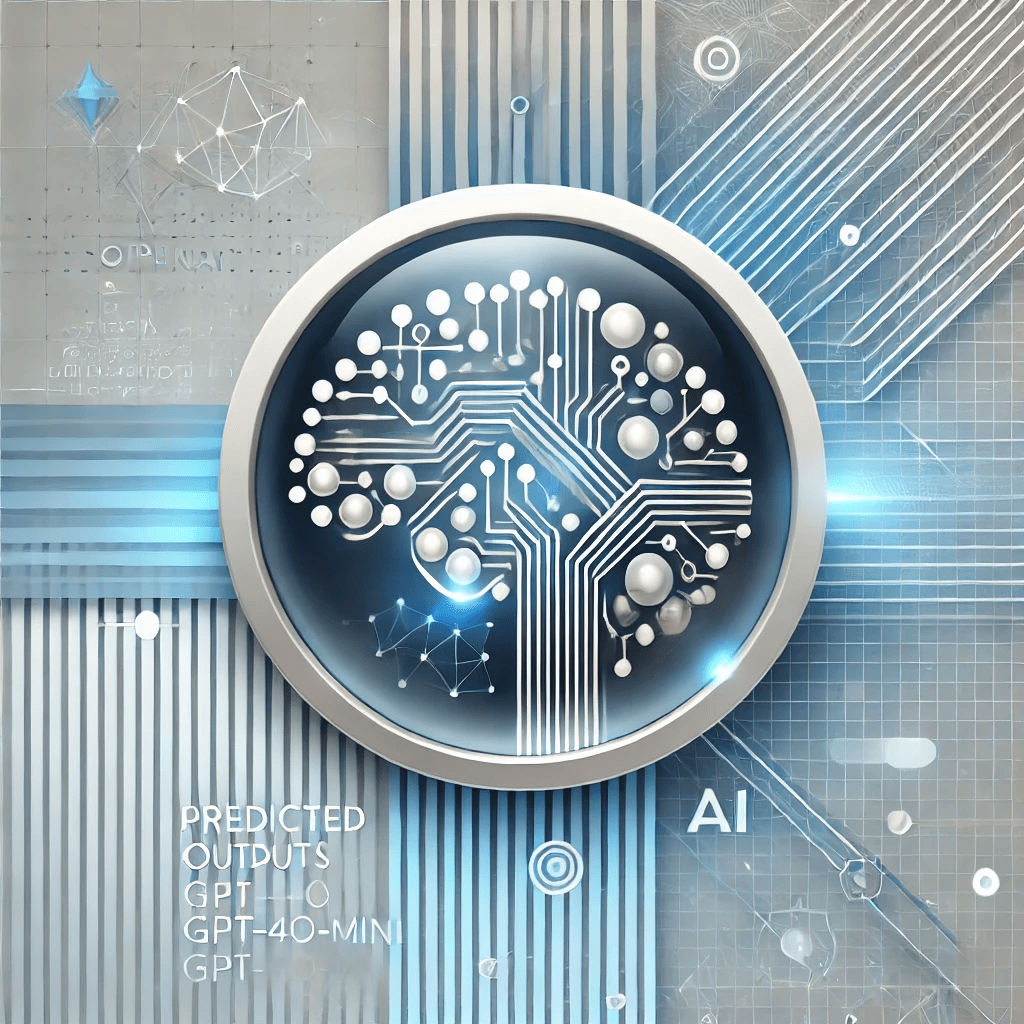AI & Digital Transformation
Major Tech Giants Drive Forward AI Innovations, Security, and Hardware with New Partnerships and Ambitious Projects
The AI industry is advancing with strategic collaborations, groundbreaking research, and emerging product development as technology companies, defense contractors, and startups explore generative AI's vast potential. Apple, OpenAI, Meta, Nvidia, and several high-profile tech innovators are collectively shaping the next wave of artificial intelligence across consumer devices, military security, and video analysis. With new hardware initiatives, enhanced AI-driven cybersecurity, and flexible models for defense and robotics applications, these advancements signify a dynamic era where AI’s possibilities are expanding to influence diverse industries on an unprecedented scale.
Apple Partners with OpenAI to Launch ChatGPT Plus in iOS, Opens Doors for Multi-Model Integration
Apple’s upcoming iOS 18.2 update will allow users to directly subscribe to ChatGPT Plus through their iPhone’s Settings app, marking a new milestone in consumer AI integration. The collaboration, which is exposure-based rather than financially compensated, ensures that ChatGPT Plus subscribers—at $20 monthly—can access advanced capabilities like the latest AI models and improved voice interactions. While free ChatGPT users will have limited features, the subscription aims to bring the benefits of conversational AI closer to everyday use. Apple’s non-exclusive approach could pave the way for integrating alternative AI models, such as Google’s Gemini, into iOS in the future, underscoring Apple’s commitment to diverse AI offerings for users.
OpenAI’s ChatGPT Search Aims High but Lacks Google’s Everyday Precision
OpenAI recently introduced ChatGPT Search, which shows potential for answering in-depth research queries but struggles with common internet searches. Unlike Google, which seamlessly provides quick results for basic queries like sports scores, business hours, or shopping information, ChatGPT Search sometimes misses the mark, offering inaccurate data or broken links. OpenAI has acknowledged these limitations and is working on improvements, especially for short, practical searches that users often rely on Google for. As the service evolves, OpenAI aims to boost ChatGPT’s utility as a go-to tool for both complex research and routine browsing.
Jericho Security’s AI-Powered Cyber Defense for the Pentagon: A New Era in Military Cybersecurity
Jericho Security, a New York-based cybersecurity startup, has secured a significant contract with the U.S. Department of Defense, marking the first generative AI-driven defense deal with AFWERX, the Air Force innovation hub. Specializing in advanced phishing simulations and personalized security training, Jericho’s “predator and prey” model adapts to evolving threats, including deepfake impersonations and AI-generated malware. The platform aims to protect military personnel from sophisticated cyber attacks, underscoring a shift toward more resilient defense strategies that address human vulnerabilities. This contract not only validates Jericho's pioneering approach but also highlights the military's proactive stance in AI-enhanced cybersecurity.
OpenAI Expands Hardware Vision with Meta AR Leader Hire, Hints at Future Consumer Devices
In a strategic move, OpenAI has appointed Caitlin Kalinowski, a former Meta AR expert, to spearhead its hardware and robotics initiatives. With a strong background in augmented reality and years spent developing Meta’s Orion AR prototype, Kalinowski brings essential expertise to OpenAI’s growing interest in consumer AI products. Her addition to the team aligns with OpenAI's rumored collaboration with Jony Ive, former Apple designer, hinting at the development of an AI-focused hardware device. The new direction in robotics and hardware signals OpenAI's ambition to bridge the gap between cutting-edge AI models and physical products that can transform user interactions in daily life.
Nvidia Launches AI Blueprint to Revolutionize Video Analysis Across Industries
Nvidia’s new AI Blueprint is set to empower developers with tools for video and image analysis using generative AI and natural language capabilities. The platform allows seamless integration of visual language models, enabling developers to customize applications from smart city surveillance to warehouse safety checks. Companies such as Accenture, Dell, and Lenovo have already adopted the system, underscoring its versatility and widespread appeal. With AI Blueprint, Nvidia aims to make advanced video analysis tools accessible to developers and industry stakeholders, drastically reducing the time required for AI development and implementation.
Meta’s Llama AI Models Now Available for U.S. Defense Sector, Raising Ethical Debates
Meta has reversed its previous restrictions on using Llama AI models for defense, granting access to the U.S. national security sector and allied nations. The decision responds to reports of unauthorized military use of Llama AI by foreign entities. This shift raises ethical questions and security concerns about open AI in defense. Meta’s decision to allow controlled use of Llama within U.S. defense applications illustrates an emerging trend where private companies cautiously enter the defense arena. As discussions continue, experts warn of the challenges of balancing open AI innovation with military applications.
OpenAI Plans Historic Transition from Non-Profit Research to For-Profit AI Enterprise
In a bold strategic shift, OpenAI is negotiating with California authorities to convert from a non-profit research entity into a for-profit organization. The change is expected to attract more investments, fueling OpenAI's mission to become a leading AI innovator. Under this new structure, OpenAI’s non-profit entity would retain a minority stake, ensuring some continuity with its original mission. The move follows substantial funding rounds, positioning OpenAI as one of the most valuable private tech companies globally. This transition could reshape the company’s future, enabling it to leverage greater resources to push the boundaries of AI research and development.
Physical Intelligence Secures Major Investment to Develop Universal Robot Software
Physical Intelligence, a robotics startup, has attracted significant funding from industry giants like Jeff Bezos and OpenAI for its innovative π0 software platform. Designed as universal software, π0 allows robots to perform various tasks—from folding laundry to packing groceries—without task-specific programming. This advancement reflects a broader trend in robotics, where flexibility and adaptability are becoming critical for both industrial and consumer applications. With rising interest in multi-functional AI robots, Physical Intelligence’s approach could set a new standard, helping companies streamline operations while enhancing productivity across sectors.
Source: Passionates / Chat GPT







